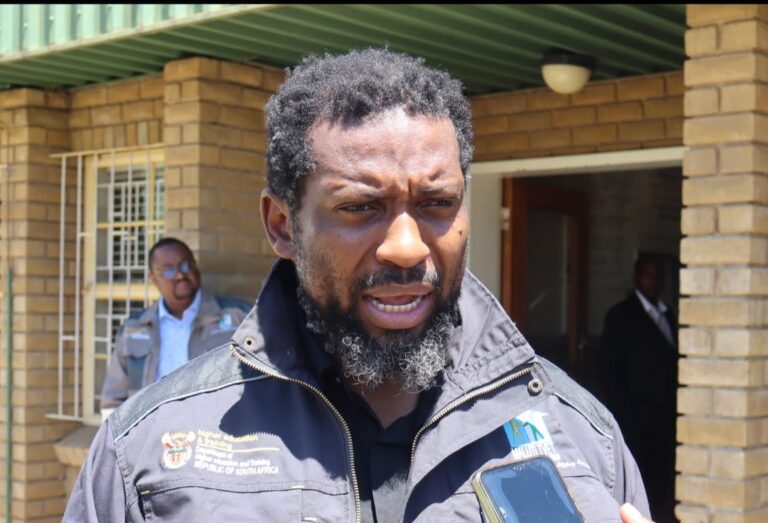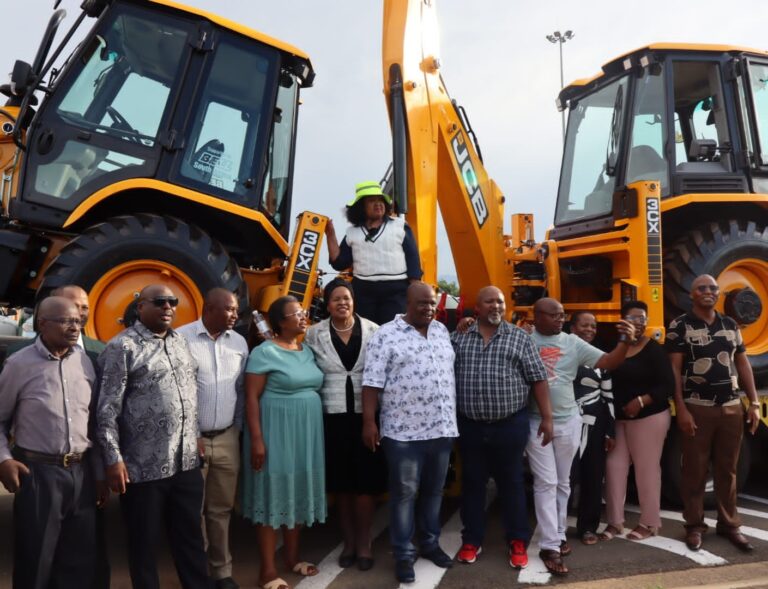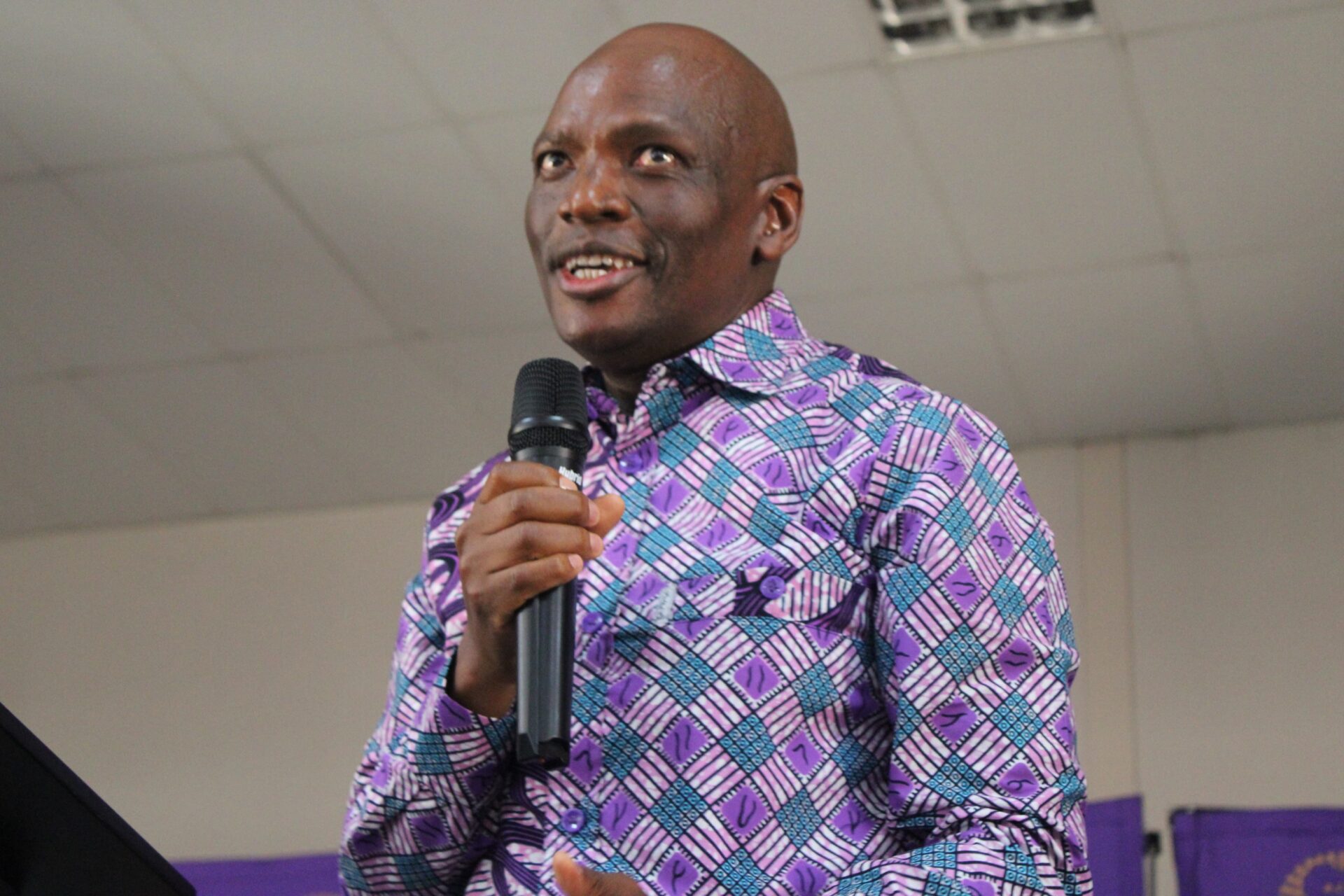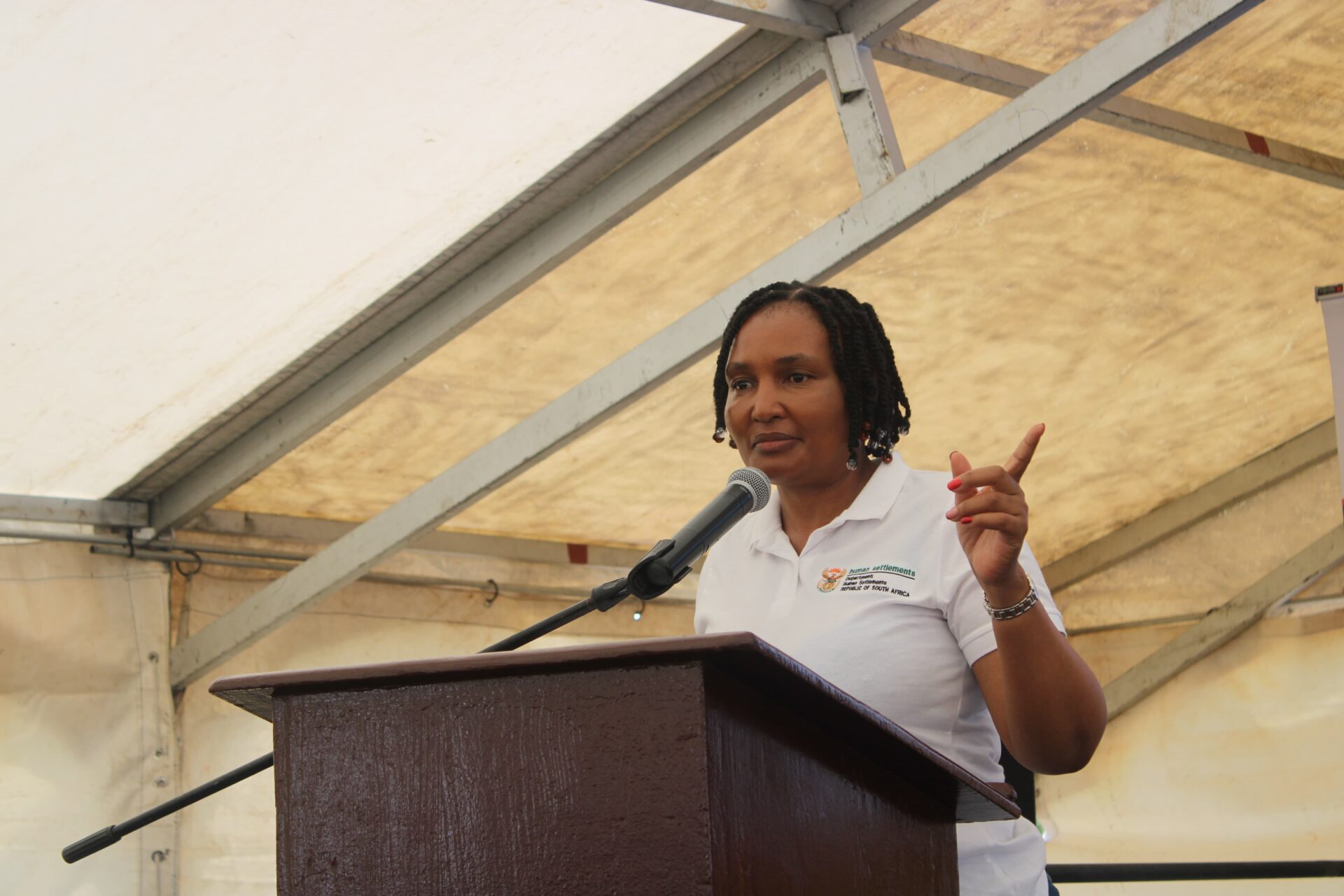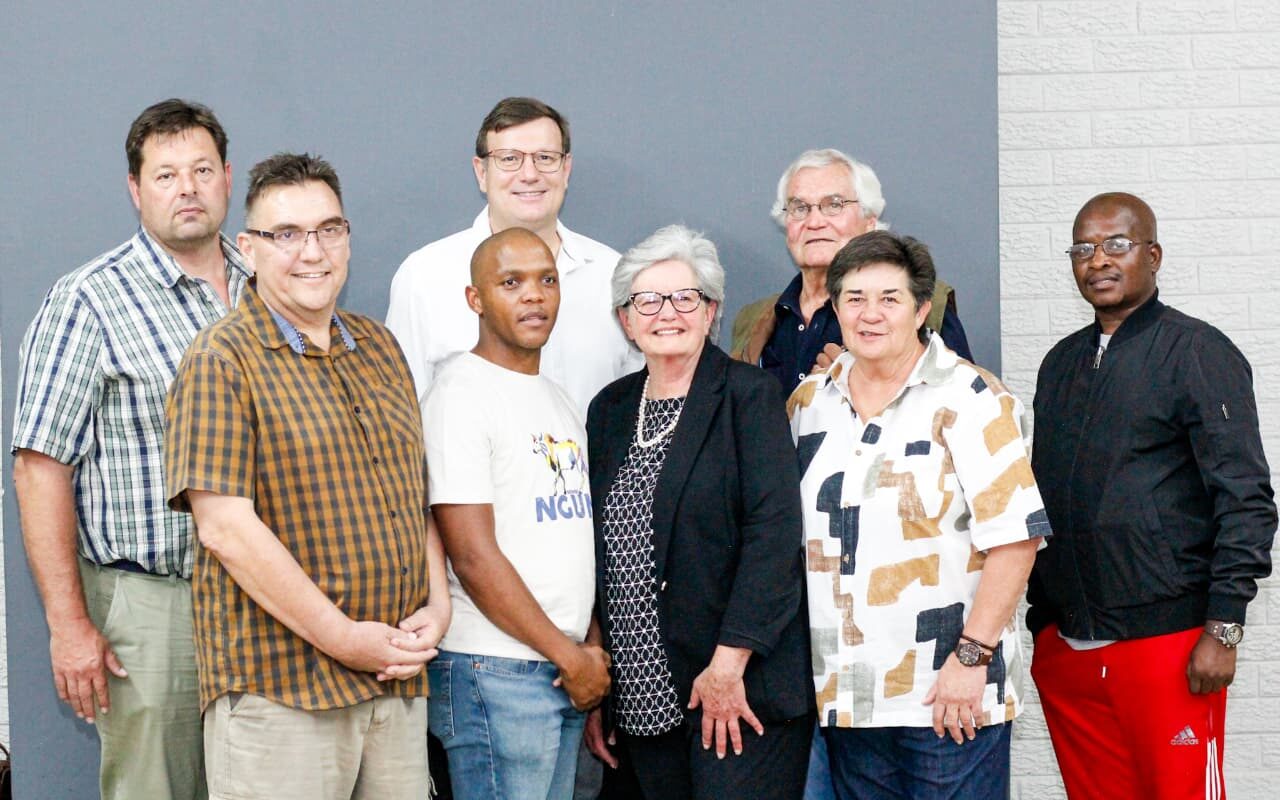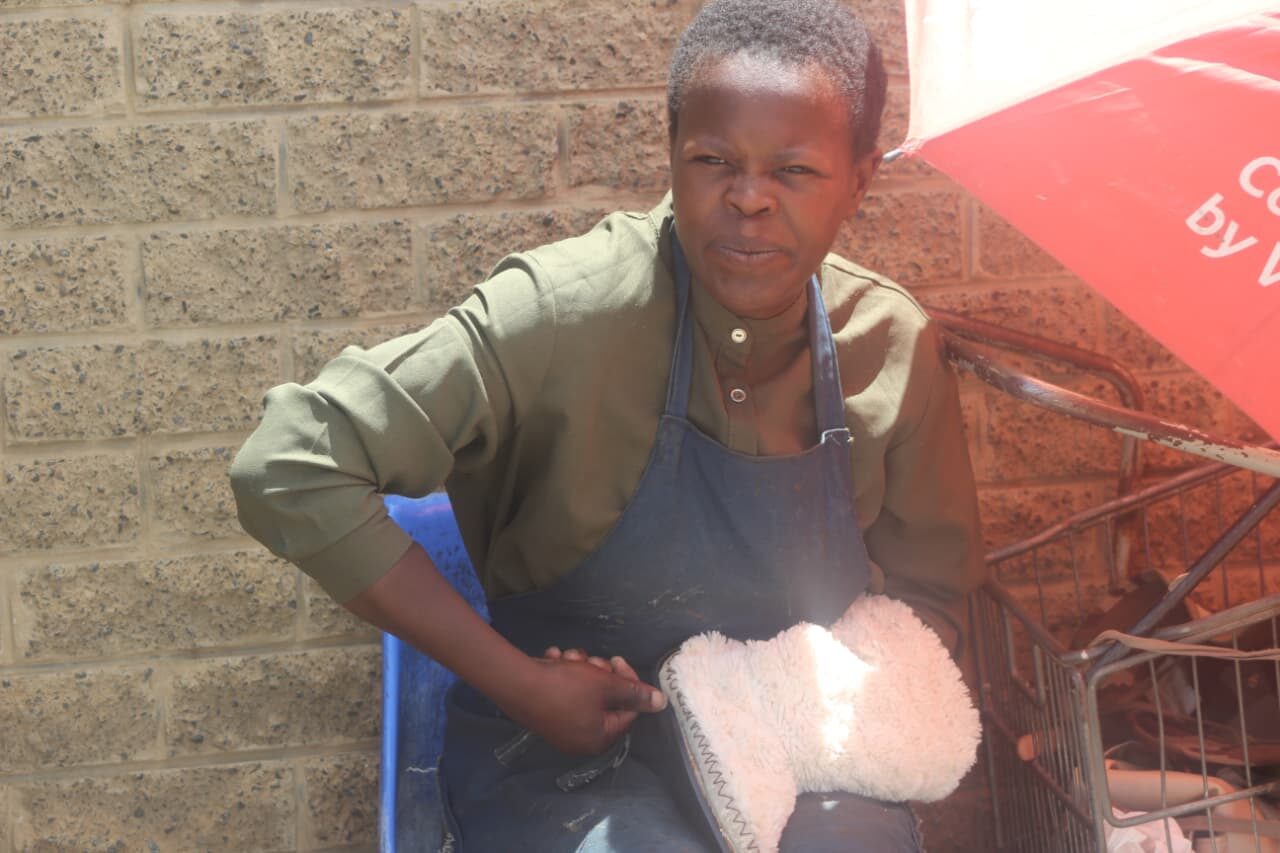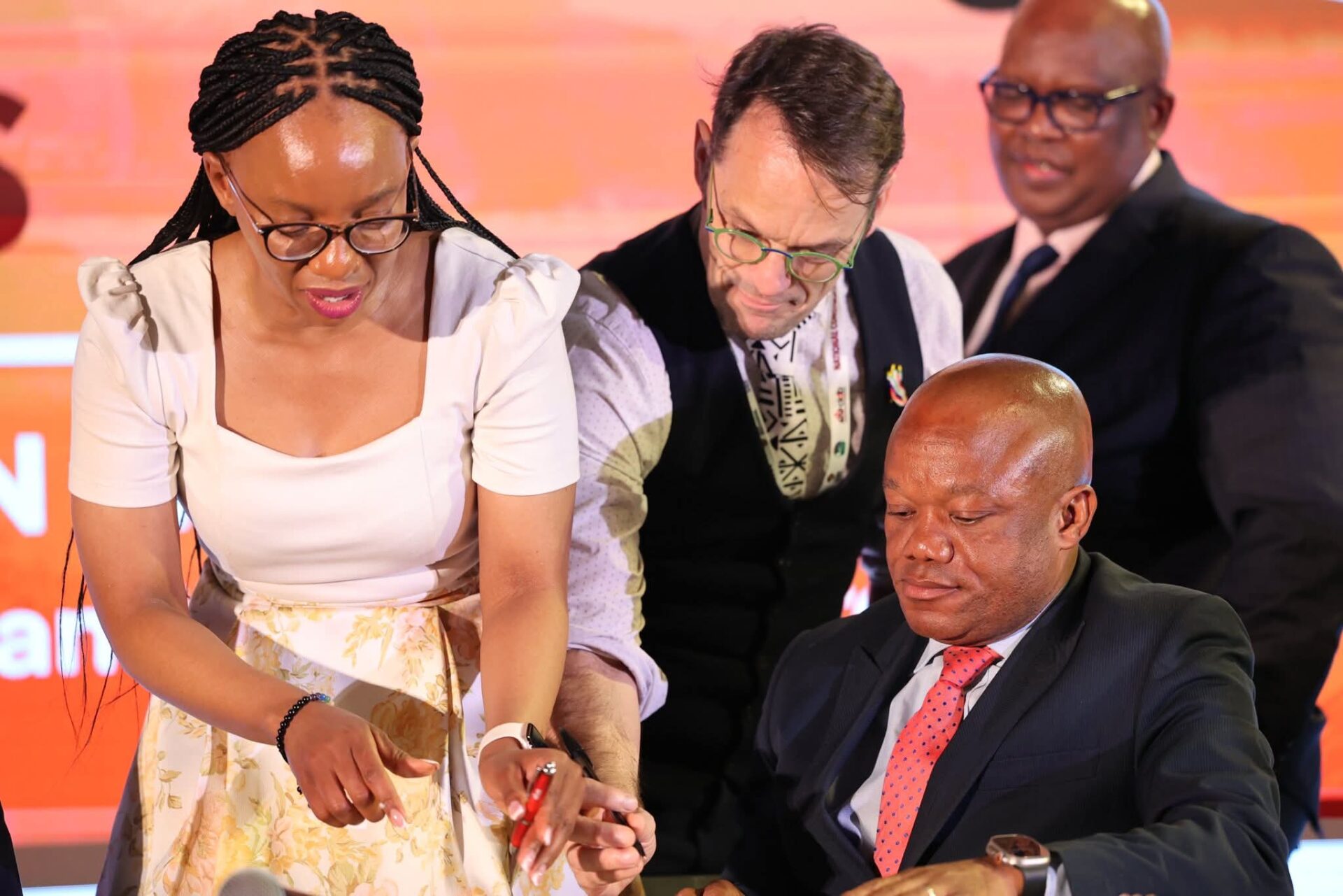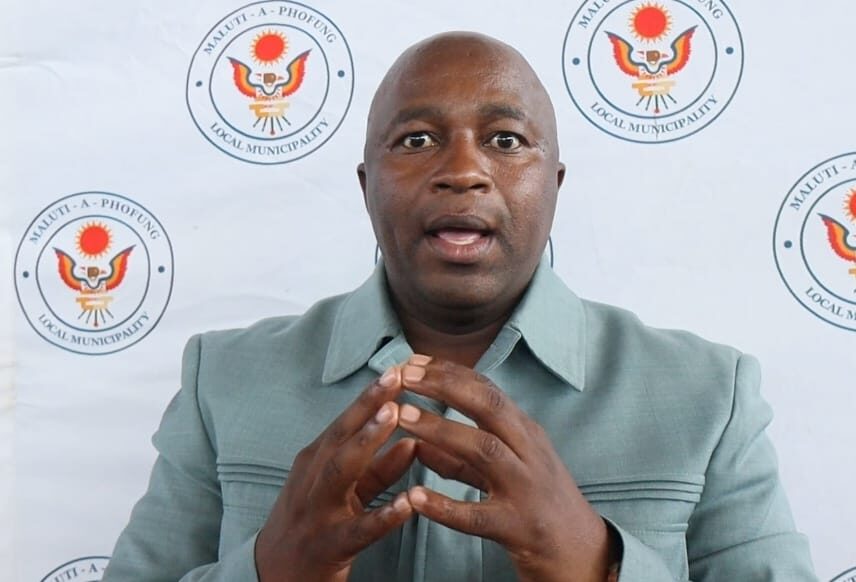By Emily Setona
QWAQWA – In a bid to uproot the maladministration that has led to many municipalities failing to deliver services to the community, the ministerial support and interventions themed ‘Every Municipality must work’ held engagements with priority districts in the Free State, setting them on a path to self-sustainability.
The deliberations held at Bluegumbosch Multi-Purpose Centre in Phuthaditjhaba on 19 September under the Thabo Mofutsanyana District and hosted by Maluti-a-Phofung Local Municipality, presented a ray of light on how municipalities are performing and recalibrated those that are experiencing shortcomings in areas ranging from governance, political and administrative interference.
Outlining the purpose of the day the TMDM executive mayor Connie Msibi said: “The presentations that we are going to hear today will indicate which are the municipalities that are improving and those that are doing well and how they are doing it so that we can share those best practices.
“We therefore implore everyone to feel free and participate and to take all the input in the spirit of learning because I think all of us as leadership, we need to have a teachable spirit. It is a teachable spirit that opens the doors for all of us to take the good from those municipalities that are doing well so that we can learn from them.”
In her presentation, the executive mayor of Maluti-a-Phofung (MAP) local municipality Malekula Melato said: “There is stability in the council since it’s a coalition administration. MPAC is still developing a noticeable action plan since the chair was elected on 29 August 2024. Water and electricity are still major challenges, but the Vaal Central Water board has been playing a critical role and will soon hand over the Fika Patso Water Treatment Plant.
“Fika Patso supplies over 90 percent of Qwaqwa with water, so this is a welcome development. The DAA implementation is going quite well as we have jointly completed auditing Kestell meters and all residents will soon buy directly from Eskom, with Harrismith and Qwaqwa to follow soon. Eskom will soon start billing all businesses in MAP and there are over 560 of them.”
At the same occasion, the executive mayor of Dihlabeng local municipality James Tseki outlined challenges in the municipality.
“Our municipality faces financial challenges: the municipality faces issues like poor financial controls, qualified audit opinions, and large debts, particularly to Eskom. Interventions include an action plan to address audit findings, cost containment, and efforts to improve cash flow and revenue collection.
“Debt relief was granted, and steps have been taken to ensure better management of creditors and debtors. When it comes to human resources: senior management positions are filled, but the municipality faces capacity challenges due to a high vacancy rate. A review of staff establishment and municipal policies is ongoing to ensure compliance with new regulations.
“Service delivery issues include water and sanitation: multiple water treatment works, and wastewater treatment works face issues like overloading, poor infrastructure, and inadequate raw water supply. Projects to upgrade these facilities are in progress but face delays due to funding and operational challenges. Roads and infrastructure are in poor condition due to aging infrastructure and lack of maintenance. Several road repair and upgrade projects are underway, with a focus on block paving and storm water drainage.”
The Deputy Minister of Cooperative Governance and Traditional Affairs, Dr. Namane Masemola engaged with the TMDM and its constituent local municipalities embarking on an in-depth examination of these government entities.
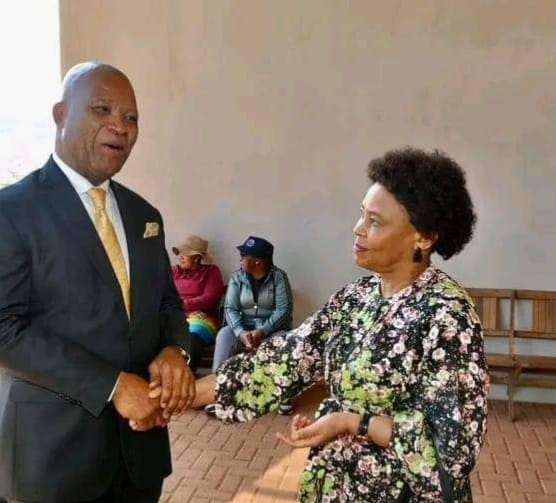
Deputy Minister of COGTA Dr. Namane Masemola standing with the executive mayor of TMDM Conny Msibi during the Ministerial Support and Intervention engagement session.
For his input Masemola remarked and said the following: “Chapter 3 of our Constitution enjoins us to work in a collaborative manner. How are we dealing with governance matters? How are we dealing with finances? Do we pass funded or unfunded budgets? Are we spending as per the plan on grants? Is the LED unit functioning? What ate our Revenue generation streams? Institutional Capacity: Are our councils resilient? Do we have institutions that can survive political storms? Are the political and administrative roles and responsibilities clear? Basis Services: Are we able to meet the demands of our people? How are we interacting and working with traditional leaders? Technical Capacity: Are critical positions in the municipality filled?
“The two areas that need attention, firstly, the negative performance in audit outcomes that has spurred the need to explore enforcement instruments for compliance. Secondly, the need to promote a culture of accountability. Furthermore, government is reviewing the disaster management framework of the country and the general laws of local government to address legislative and policy shortfalls, calling upon municipalities to actively partake in the extensive consultative processes to redesign the local government system of the country.”







